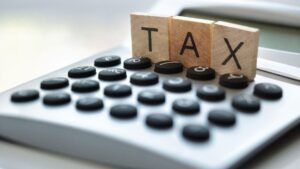New Tax Law on Pause: Nigerians Breathe, But for How Long?
It is 6:30 a.m. at a Lagos filling station. The queue snakes around the corner, drivers leaning on their car doors, eyes heavy with stress. A keke rider mutters under his breath, “If dem add one more kobo to this fuel, na wahala.” His words hang in the air like the smell of petrol, sharp and inescapable.
What’s Happening
On September 12, 2025, the Federal Government announced a delay in the implementation of a new tax law that included a 5 percent fuel surcharge. The policy, originally scheduled to take effect this year, has been pushed back until January 1, 2026.
The decision came after weeks of heated debates, with analysts warning that the surcharge would worsen Nigeria’s already suffocating cost-of-living crisis. Fuel, which powers everything from cars to generators, remains the heartbeat of the Nigerian economy. Any increase sends shockwaves through transport, food prices, and household expenses.
Why It Matters
Nigeria is already battling inflation hovering above 20 percent, food insecurity, and dwindling purchasing power. For millions, daily survival feels like balancing on a knife’s edge.
Trust in government economic policies has also been fragile. Past reforms from subsidy removals to electricity tariff hikes have left Nigerians skeptical of new promises. The delay shows that even policymakers fear the backlash of pushing citizens too far, too fast.
Everyday Reactions
For everyday Nigerians, the announcement feels like a brief sigh of relief.
“I dey run generator for my shop everyday,” says Kunle, a barber in Surulere. “Fuel don already chop my profit. If dem add tax join am, I go just close shop.” Ngozi, a final-year student at UNILAG, sees it differently. “Postponing no mean cancel. Na just extension of suffering. By next year, things fit even worse.”
Transport workers, too, remain wary. A keke rider in Yaba explains, “Passengers already dey complain of high fare. If fuel price climb again, dem go fight us. Everybody dey vex.”
ALSO READ:
-
When the Grid Goes Dark: How Nigerians Survive a Broken Power System
-
Ibom Air Incident: Passenger Comfort Emmanson Faces Lifetime Ban After Nigerian Aviation Safety Breach
-
Nigeria Weekly Recap, Adamawa Floods, Katsina Malnutrition Deaths, Super Falcons’ Historic Win, and Social Media Buzz
Policy Breakdown
The new tax law was designed to boost government revenue, partly as a replacement for fuel subsidy spending. Officials argued it would create fiscal space for infrastructure and social programs.
Critics, however, insist that introducing the surcharge during record inflation is poor timing. They argue that without stronger communication, transparency, and cushioning measures, the government risks deepening public mistrust.
What Next?
The law now kicks in on January 1, 2026 unless the government bows to more pressure. Between now and then, officials are expected to review strategies to soften the impact, possibly with targeted subsidies or renewable energy investments.
But Nigerians remain cautious. Many believe the real issue is not timing, but the absence of trust. As one commuter put it: “If we no see better plan, this delay na just small plaster on big wound.”
The Human Reflection
At its core, this is not just a story about tax laws and percentages. It is about the mother calculating whether transport fare will swallow her children’s school fees, the shop owner praying his generator won’t fail, and the student wondering if she can afford both data and dinner.
The delay has bought Nigerians a few months of breathing space. But unless policies begin to feel human, empathetic, and trustworthy, the struggle will only deepen when January comes.
More Articles:
-
The Hustle Mentality is Eating Us From Inside Out
-
10 Black Writers Who Have Reshaped Our Story
-
Not Every iPhone Is Luxury: 5 Affordable Phones in Nigeria That Look Expensive

Desauce Magazine is more than a blog, it is a cultural journal capturing the rhythm of Nigeria. From music and film to lifestyle and social issues, we tell stories that reflect the energy, struggles, and brilliance of our people.





droversointeru
5 months agoyou are really a good webmaster. The site loading speed is incredible. It seems that you’re doing any unique trick. Moreover, The contents are masterwork. you have done a excellent job on this topic!